Developing Policy
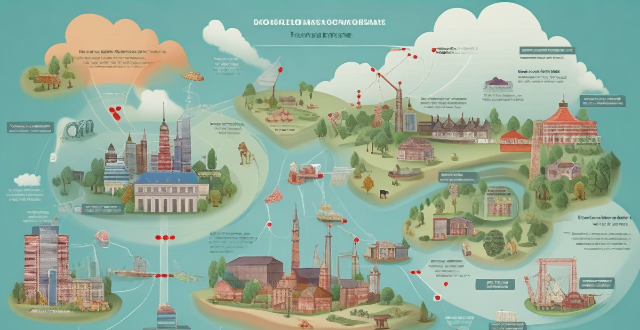
Can developing countries achieve the same climate goals as developed ones ?
This discussion explores the complexities surrounding whether developing countries can achieve the same climate goals as developed ones. It outlines the challenges such as financial constraints, infrastructure gaps, and socioeconomic barriers, but also highlights opportunities like leapfrogging technology, policy innovations, and cultural adaptability. The conclusion suggests that with international support, strategic policy-making, and a focus on sustainable development, developing nations can make significant progress towards sustainability.

Can developing countries meet the same climate commitments as developed ones ?
Climate change is a global challenge that requires collective action from all countries, regardless of their level of development. However, the question arises: can developing countries meet the same climate commitments as developed ones? This article discusses the differences in economic and technological capabilities, international support and collaboration, and national priorities and policy choices between developed and developing countries. While there are significant differences between the two groups of countries in terms of their ability to meet stringent climate commitments, international support and collaboration can help bridge these gaps. Additionally, national priorities and policy choices play a crucial role in determining whether developing countries can successfully implement climate actions while balancing other developmental goals.

Can developed and developing countries achieve carbon neutrality at the same pace ?
The article discusses the challenges and potential solutions for developing countries to achieve carbon neutrality at the same pace as developed countries. The key differences between developed and developing countries in terms of economic development, technological advancements, and political will are highlighted. Developed countries have higher GDP per capita, more resources for research and development, and greater financial capacity to invest in renewable energy infrastructure. In contrast, developing countries have lower GDP per capita, limited resources for research and development, and less financial capacity to invest in renewable energy infrastructure. Technological advancements also play a crucial role in achieving carbon neutrality. Developed countries have advanced technology and innovation in clean energy sectors, access to cutting-edge research facilities, and well-established industries with experience in implementing sustainable practices. In contrast, developing countries have emerging technology and innovation in clean energy sectors, limited access to advanced research facilities, and infant industries with less experience in implementing sustainable practices. Political will is another factor that affects the pace of achieving carbon neutrality. Developed countries have stronger political commitment to addressing climate change through policy measures, more established regulatory frameworks for promoting renewable energy adoption, and greater public awareness and support for environmental issues. In contrast, developing countries have varying levels of political commitment to addressing climate change through policy measures, less established regulatory frameworks for promoting renewable energy adoption, and lower public awareness and support for environmental issues due to other pressing concerns such as poverty and healthcare. Developing countries face several challenges in achieving carbon neutrality, including lack of financial resources, technological barriers, and infrastructure challenges. Potential solutions for developing countries include international cooperation and funding, capacity building and education, and policy interventions and regulatory reforms. By working together through these solutions, both developed and developing countries can make significant progress towards a more sustainable future.
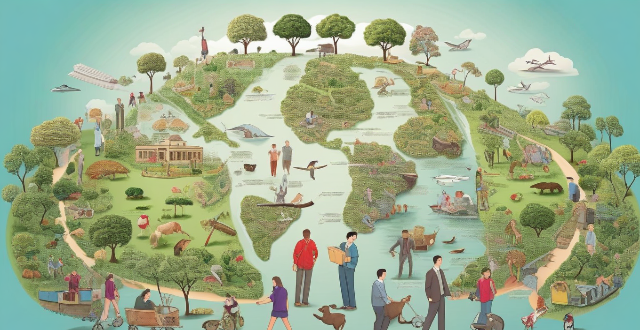
How do developing countries participate in international climate agreements ?
Developing countries play a crucial role in the global effort to combat climate change. Their participation in international climate agreements is essential for achieving a sustainable future for all nations. This article discusses how developing countries can engage with these agreements and contribute to global climate action by prioritizing education and awareness, seeking technical assistance, accessing financial and technological support, ensuring inclusivity and representation, building capacity through institutional strengthening and training programs, and engaging in collaboration and partnerships. By addressing these key points, developing countries can play a significant role in shaping global climate policy and contributing to a more sustainable future for our planet.

How do developing countries benefit from the Clean Development Mechanism (CDM) ?
How Developing Countries Benefit from the Clean Development Mechanism (CDM) The Clean Development Mechanism (CDM) of the Kyoto Protocol brings numerous benefits to developing countries, including technology transfer, sustainable development, and environmental advantages. It also enhances their capacity building, global engagement, and influences policy-making towards sustainability. Overall, the CDM aids in reducing emissions while fostering economic growth and environmental conservation.

In what ways can developing countries participate effectively in global climate governance ?
**How Developing Countries Can Effectively Participate in Global Climate Governance** Developing countries are pivotal in global climate governance due to their disproportionate impact from climate change. Their effective participation can be achieved through several strategies: 1. **Capacity Building**: This involves enhancing educational programs to raise climate awareness and training local experts. It also includes investing in sustainable infrastructure and establishing research institutions. 2. **Policy Integration**: Countries should enact climate-related legislation, set emission reduction targets, and ensure policy alignment across different sectors while engaging stakeholders. 3. **Finance and Investment**: Access international and domestic funds for climate action, and make smart investments in renewable energy and sustainable agriculture. 4. **Technology Transfer and Innovation**: Developing countries should form technology partnerships, create exchange platforms, and encourage local innovation through R&D and incentives. 5. **Participation in International Negotiations**: They should prepare well for negotiations, build coalitions, advocate for their interests, and use forums for dialogue at international conferences. Through these strategies, developing countries can not only protect themselves but also significantly contribute to the global fight against climate change.

Is wind energy a viable option for developing countries ?
Is wind energy a viable option for developing countries? Yes, wind energy offers numerous benefits such as cost-effectiveness, sustainability, job creation, and improved energy security. However, several challenges must be addressed including infrastructure needs, financing barriers, policy development, and environmental considerations. With careful planning and strategic investments, wind energy can indeed be a viable option for developing countries looking to build a sustainable future.

What are the challenges faced by developing countries in emission reduction ?
Developing countries face numerous challenges in reducing their greenhouse gas emissions, including lack of financial resources, technological constraints, socio-economic factors, policy and regulatory challenges, cultural and educational barriers, and natural resource availability. These challenges highlight the complex nature of emission reduction efforts in developing countries and underscore the need for international cooperation, financial assistance, and technology transfer to support their transition to a low-carbon future.

How do carbon credit systems impact developing countries ?
Carbon credit systems can have both positive and negative impacts on developing countries, including economic development, environmental benefits, technology transfer, market risks, social impacts, and environmental concerns. Policymakers and stakeholders must carefully consider these impacts when designing and implementing carbon credit projects in developing countries.
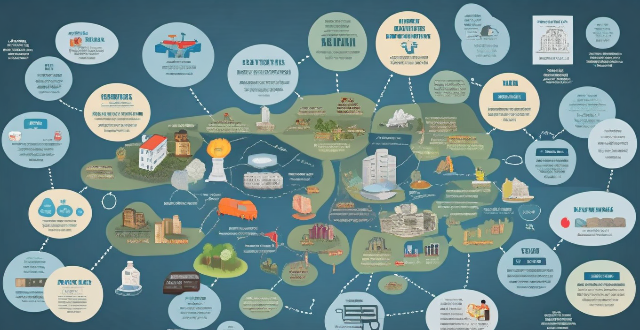
How do climate policies vary between developed and developing countries ?
This article compares the climate policies of developed and developing countries, highlighting differences in economic resources, technological capabilities, and political priorities. Developed countries have larger economies and more financial resources to invest in climate change initiatives, while developing countries face challenges due to limited financial resources. Technological capabilities also differ significantly, with developed countries possessing advanced technologies for renewable energy and emission reduction strategies, while developing countries lack such infrastructure. Political priorities also vary, with developed countries often prioritizing climate action, while developing countries may prioritize other pressing issues. The article concludes that international cooperation and support mechanisms are crucial for bridging these gaps and fostering a global response to climate change that is both equitable and effective.
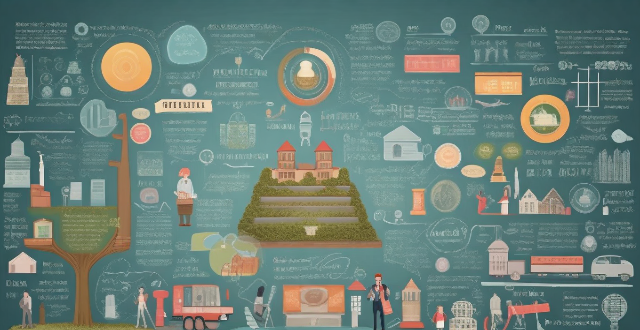
How can we address the lack of climate education in developing countries ?
Addressing the lack of climate education in developing countries requires a multi-faceted approach that considers local contexts, cultural values, and educational infrastructures. Strategies include prioritizing climate education at the policy level, enhancing access to educational resources, training and supporting educators, community engagement and empowerment, building sustainable infrastructure, research and development, and international cooperation and exchange. By implementing these strategies, developing countries can work towards bridging the gap in climate education and ensure that future generations are equipped with the knowledge to confront the challenges of our changing climate.

How can we ensure that climate policy assessments are inclusive and consider the needs of marginalized groups ?
In order to ensure that climate policy assessments are inclusive and consider the needs of marginalized groups, it is important to: 1. Identify and engage with marginalized groups such as Indigenous peoples, low-income communities, people with disabilities, women and girls, minority ethnic and racial groups, and urban and rural poor. 2. Conduct participatory research and data collection methods such as community mapping, photovoice, mobile interviews, and storytelling workshops. 3. Incorporate intersectionality into policy design by analyzing data, consulting with experts in fields such as gender studies, disability rights, and environmental justice, and developing targeted interventions that address the specific needs and priorities of marginalized groups. 4. Promote transparency and accountability by involving the public in the policy-making process through public consultations, hearings, and other means, providing information about climate policies in accessible formats, and regularly monitoring and evaluating the effectiveness of climate policies in meeting the needs of marginalized groups.
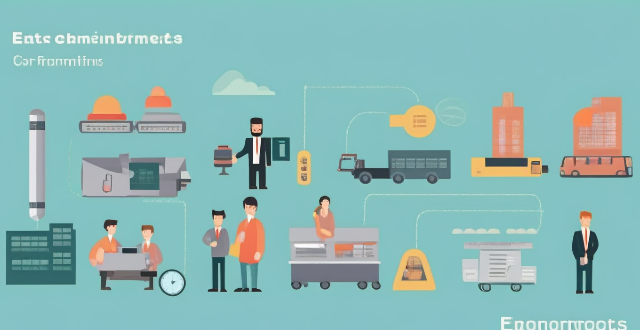
Can carbon credits be a sustainable source of income for developing countries ?
The article explores the potential of carbon credits as a sustainable source of income for developing countries, highlighting their benefits in revenue generation, sustainable development, and international cooperation. However, it also underscores the challenges such as market volatility, implementation complexities, and ensuring environmental integrity. The conclusion emphasizes that with robust frameworks and transparent monitoring, carbon credits can be a cornerstone of sustainable development strategies for developing countries.

What role do developing countries play in climate governance ?
The article discusses the crucial role of developing countries in climate governance, highlighting their vulnerability to climate change, growing greenhouse gas emissions, active participation in international negotiations, innovation and technology transfer, financing and investment needs, and capacity building requirements. It emphasizes that developing countries are essential for achieving a successful outcome in the global fight against climate change.

What happens if I cancel my insurance policy early ?
Cancelling an insurance policy early can have several consequences, including a potential refund of unused premium, penalties and fees, loss of coverage, difficulty in getting future coverage, and impact on credit score. It's important to carefully consider these factors before making a decision to cancel your policy.
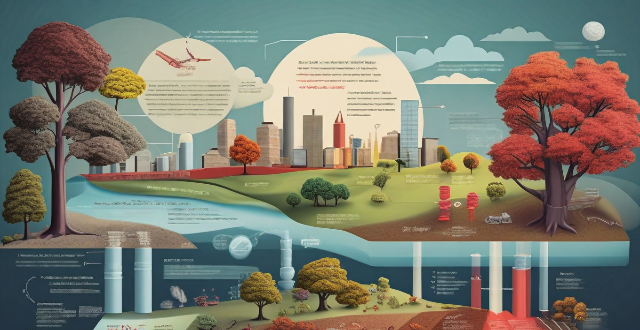
How do climate model predictions influence policy decisions ?
Climate model predictions significantly influence policy decisions on climate change by identifying risks, assessing mitigation measures, guiding long-term planning, and fostering international cooperation. These models simulate the Earth's climate system to predict future conditions, aiding in prioritizing actions, allocating resources, and evaluating intervention strategies. However, challenges like uncertainty, data quality, interpretation, and policy inertia must be addressed to ensure effective translation of scientific findings into actionable policies.

How can developing countries participate effectively in global climate cooperation ?
Developing countries can participate effectively in global climate cooperation by building capacity for climate action, promoting sustainable development pathways, engaging actively in international climate negotiations, and leveraging domestic resources and partnerships. This involves developing national climate policies and strategies, strengthening institutional capacity, integrating climate considerations into national development plans, fostering innovation and technology transfer, participating in global climate dialogue, seeking international support and financing, mobilizing domestic resources for climate action, and fostering cross-sectoral partnerships. By taking these steps, developing countries can contribute significantly to mitigating climate change and adapting to its impacts while promoting sustainable development and poverty reduction.

How does climate debt affect developing countries ?
The concept of climate debt acknowledges the unequal impact of climate change on developing countries, which have contributed less to the problem but suffer more from its effects. This includes economic losses, social challenges such as health concerns and food insecurity, environmental threats like biodiversity loss and water scarcity, and political and legal issues including migration and international agreements. To address these challenges, initiatives like financial transfers, technology sharing, capacity building, debt forgiveness, and just transition policies are being implemented. Recognizing and supporting the needs of developing nations is crucial for achieving a more equitable and sustainable global future.

How can technology support more accurate and efficient climate policy evaluations ?
Technology aids in accurate & efficient climate policy evaluations by offering tools for data collection, modeling, visualization, collaboration, and automation.

How can I create a strong password policy for my network ?
Creating a strong password policy is crucial for the security of your network. Follow these steps to create an effective password policy: 1. Determine the purpose of the password policy. 2. Define password requirements. 3. Enforce password changes. 4. Store passwords securely. 5. Train users on password security. 6. Monitor and audit password use.
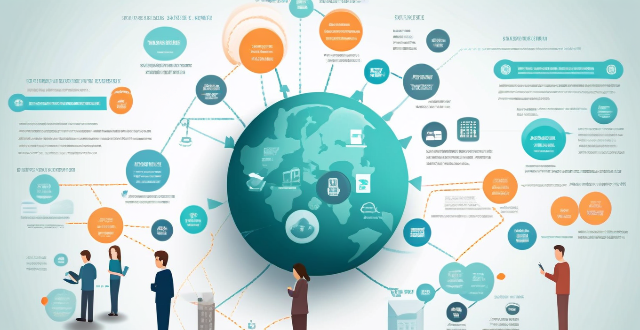
What are the challenges faced by Germany due to its open immigration policy ?
Germany's open immigration policy brings economic, social, and political challenges including infrastructure strain, job market competition, cultural integration difficulties, religious diversity conflicts, anti-immigration sentiments, international pressure, and legal challenges. Addressing these requires a collaborative approach involving various sectors to minimize challenges while benefiting from the policy.
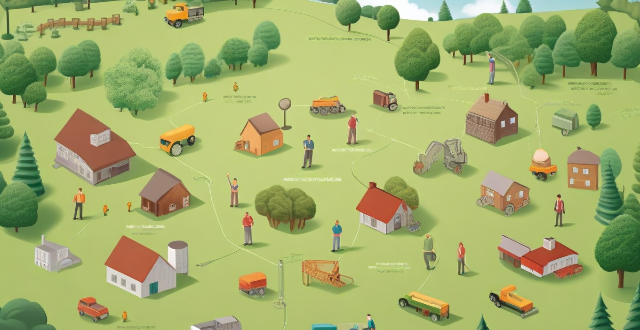
How do economic indicators differ between developed and developing countries ?
Economic indicators reflect the health and performance of a country's economy, with significant differences between developed and developing countries. Developed countries typically have higher GDP and GDP per capita values, lower inflation rates, more robust social safety nets, and attract high levels of foreign direct investment (FDI). They also score high on the Human Development Index (HDI), have more balanced trade positions, and while income inequality exists, there are often stronger welfare systems to mitigate its effects. On the other hand, developing countries often have lower GDP and GDP per capita, higher inflation rates, less developed social safety nets, and receive less FDI due to perceived risks. They also tend to have lower HDI scores, struggle with trade deficits, and face more pronounced income inequality. However, it is important to note that each country is unique and may exhibit characteristics that do not strictly align with typical developed or developing country traits. Economic indicators should always be considered within the context of a country's specific circumstances.

Does restrictive immigration policy improve national security ?
The text discusses the complex question of whether restrictive immigration policy enhances national security. It explores various aspects including economic impact, social cohesion, international relations, and internal security dynamics to provide a nuanced understanding. The text concludes that while a restrictive immigration policy might seem appealing from a national security standpoint, it is not a silver bullet, as benefits must be weighed against potential negative impacts on different factors. A balanced approach that ensures thorough vetting without undue restrictions might prove more effective in enhancing national security in the long term.

What role does public participation play in climate policy evaluation ?
Public participation is vital in climate policy evaluation as it ensures accountability, transparency, and diverse perspectives. It allows for the co-creation of solutions and fosters a sense of ownership among citizens. Governments can promote public participation through public consultations, collaborative governance, and digital technologies. Overall, public participation leads to more effective and sustainable climate policies.

Can exercise reduce the risk of developing cardiovascular diseases ?
Cardiovascular diseases (CVDs) are a leading cause of death worldwide, and regular physical activity or exercise is one of the most effective ways to reduce the risk of developing them. Exercise helps improve blood circulation, lower cholesterol levels, reduce inflammation, manage weight, and improve glucose control. The American Heart Association recommends at least 150 minutes per week of moderate-intensity aerobic activity or 75 minutes per week of vigorous-intensity aerobic activity, along with muscle-strengthening activities at least two days per week.

What role do developing countries play in climate summit discussions ?
Developing countries play a significant role in climate summit discussions by contributing to mitigation efforts, adaptation strategies, and technology transfer. However, they face challenges such as limited resources, unequal responsibility, and lack of representation. It is crucial to recognize and address these challenges to ensure that developing countries are adequately represented and supported in climate negotiations.

What should I look for in a travel insurance policy for adventure activities ?
When selecting a travel insurance policy for adventure activities, there are several key factors to consider, including coverage for specific sports and equipment, medical and evacuation coverage, trip interruption and cancellation, baggage and personal effects, liability coverage, and customer service and support. By considering these factors, you can choose a policy that will give you peace of mind and financial protection during your exciting adventures abroad.
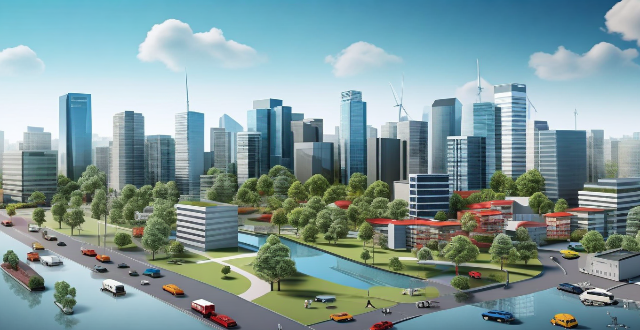
How can developing countries benefit from implementing renewable energy solutions ?
Renewable energy solutions offer significant benefits for developing countries, including reduced energy costs, job creation, improved health and environmental quality, increased energy security, and climate change mitigation. By investing in renewable energy infrastructure, these countries can build more sustainable and prosperous futures for themselves and their citizens.

Can climate information sharing lead to better policy making ?
Climate change is a pressing issue that requires informed policymaking. Climate information sharing can improve decision-making, collaboration, and transparency in the policy process. However, challenges such as data quality, accessibility, and coordination must be addressed to ensure effective information sharing. Overcoming these challenges can lead to better policies that address climate change.